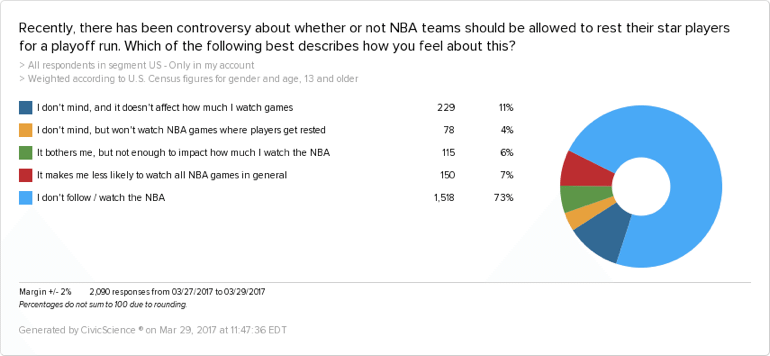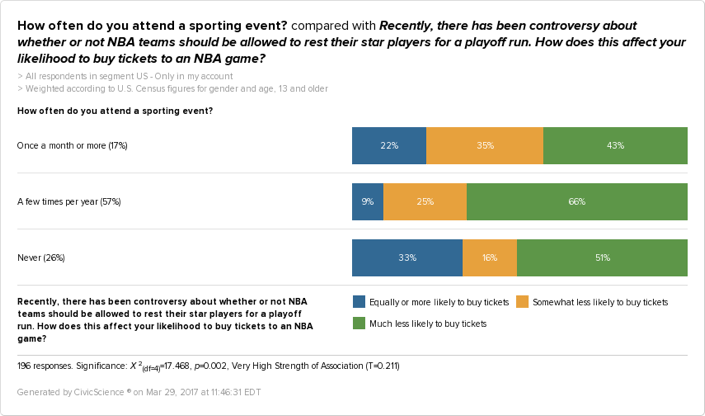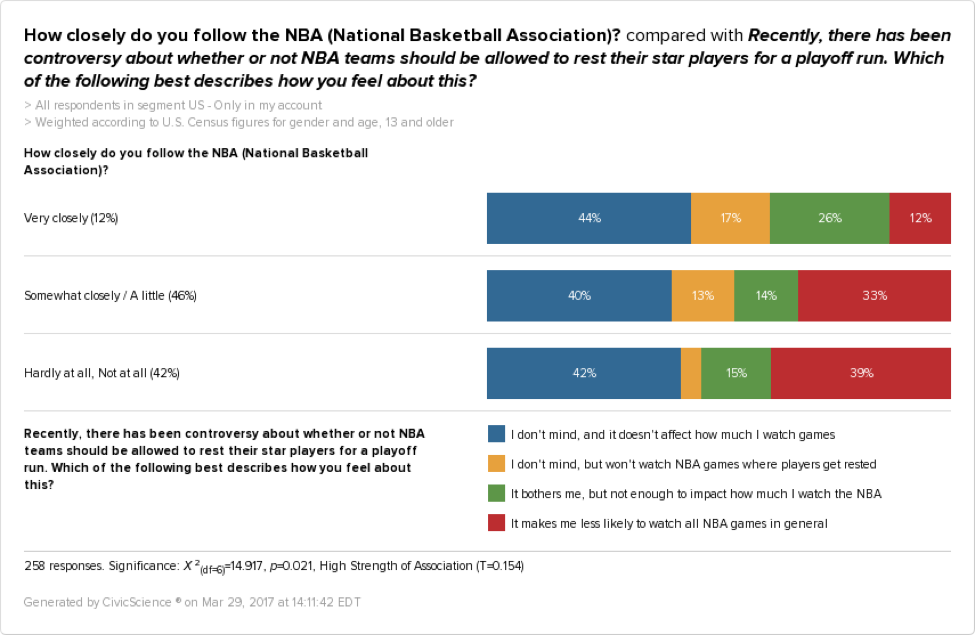SUMMARY: Statistics show that avid NBA fans are not overly concerned about teams resting their star players in the interest of overall strategy – though the issue seems to be more troublesome to casual fans and ticket buyers. Appealing to this latter group should be a priority, given the league’s need to grow its fan base to catch up with the other major sports.
If you follow basketball, you’ve probably seen the most recent bit of controversy in the NBA: should teams be allowed to rest their star players on a given night to help preserve them for the playoff run? On its face, it seems simple. Of course coaches who are paid to win championships should be allowed to tactically decide what puts them in the best position to do so. But, what about the people who paid $100 to see Stephen Curry or LeBron James or Kawhi Leonard in person, only to find out when they get to the arena that they aren’t playing?
It’s the dilemma that all sports leagues face: allowing teams to make the best decisions to be competitive, while still preserving the product that consumers are paying good money to see. Those two things are often at odds with one another.
The paid media talking heads have their opinions. But, what about the fans? We asked a few questions to find out:
The vast majority of NBA fans are unaffected by the issue. Many of them care, but not enough to impact how they consume the league’s product. In addition, when looking at how much it impacts likelihood to buy tickets, a similar theme emerges.
Consumers who show the highest negative impact on likelihood to purchase tickets are those that go fairly infrequently. All in all, a pretty clear theme emerges: the diehard NBA fans don’t really care, whether it’s because they understand the competitive nature of the game or because they’ll watch enough games to see the superstar athletes they pay to see anyway. However, it may be more of an issue for the casual fan, or a barrier to entry for those that do not watch the NBA.
And therein lies the larger opportunity for the NBA: over 70% of consumers say that they don’t watch or follow the NBA. That compares negatively with our questions about the MLB or the NFL, where 58% and 45%, respectively, say they follow the leagues hardly or not at all. Compared to those other major sports leagues, the NBA still has enormous potential for growth.
Given that, the NBA is faced with the common dilemma when considering eliminating teams’ abilities to rest their superstar players: potentially alienating diehard fans by impacting the competitive nature of the game vs. improving the product for the casual fan and bringing more people into the fold.
The issue of resting players may not be the solution. After all, it’s a pretty minor issue, as the Cavs, Warriors, and Spurs are the only contenders that are currently resting their stars with any sort of regularity. However, the issue highlights the real opportunity for the NBA moving forward: how do they convert the 3 in 4 consumers who have yet to jump on the bandwagon?
Interested in other sports insights? Check out our recent findings into Super Bowl viewership, and the potential decline of the NFL.











